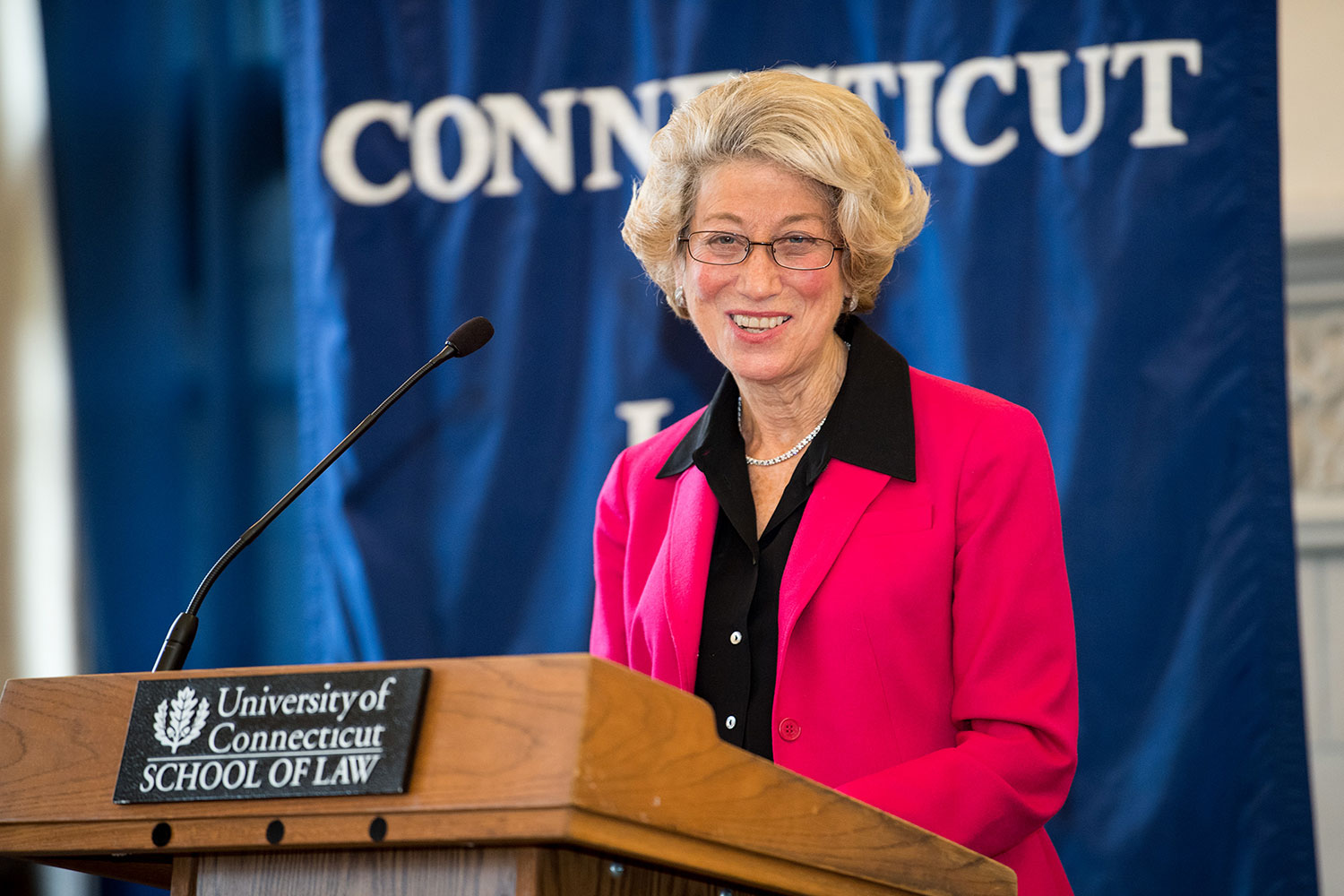From the enforcement of slavery laws to recent shootings of young, unarmed black men, policing in the United States has always targeted and punished racial minorities disproportionately, retired Judge Shira A. Scheindlin told an audience Tuesday at UConn School of Law.
Scheindlin, the 2017 Day Pitney Visiting Scholar, traced the history of racial bias in law enforcement from slavery through debt peonage to the War on Drugs, mandatory minimum sentencing and mass incarceration. She concluded with an assessment of Floyd v. City of New York, a class action lawsuit she tried in the Southern District of New York that challenged the stop-and-frisk practices of the New York City Police Department.
Her presentation was part of the Day Pitney Visiting Scholar program, sponsored by the Connecticut Law Review and underwritten by the Day Pitney Foundation.
The practice of stopping, questioning and searching people when there is little or no reason to suspect them of a crime has been aimed more frequently and more aggressively at African American and Hispanic people, in New York and other cities, Scheindlin said. The experience may not seem damaging to those who have not endured it—until they listen to those who have, she said. “It’s an intrusion. It’s public. It often spins out of control.”
After Scheindlin imposed stringent standards for police stops in New York City, the number of stops there dropped from a high of more than 685,000 in 2011 to 22,000 in 2015. Predictions that crime would increase if stops decreased turned out to be wrong, she said.
Scheindlin served 22 years on the federal bench in the Southern District of New York after her appointment by President Bill Clinton in 1994. After her retirement from the bench in 2016, she returned as counsel in the Litigation Practice Group of Stroock & Stroock & Lavan. She also serves as an arbitrator/mediator under the auspices of JAMS.
As the 2017 visiting scholar, Scheindlin enlarges a distinguished cohort. Those previously honored include Lawrence Lessig, Judge Michael Mukasey, Bob Woodward, and Supreme Court justices Antonin Scalia and Ruth Bader Ginsburg.



